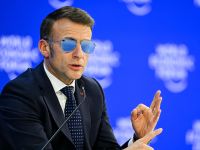US Secretary of State John Kerry has met G7 partners for talks on the Iranian nuclear deal, Yemen crisis and international conflicts.
Kerry told reporters ahead of a meeting of the seven world powers Wednesday that their talks would focus on the Middle East, cease-fire in Ukraine and in particular the nuclear deal with Iran.
He expressed optimism for reaching a final nuclear agreement with Iran within three months, and praised a compromise reached Tuesday between the Obama administration and the US Congress, which voiced doubts about a landmark framework agreement deal with Iran brokered earlier in April.
Kerry said: "Yesterday there is a compromise reached in Washington regarding congressional input.
"We are confident about our ability for the president to negotiate an agreement … and to do so with the ability to make the world safer and again every partner here has been absolutely critical to our ability to be able to get where we are today."
A Senate committee Tuesday unanimously approved a compromise bill that gives Congress more say in a final Iran accord.
'Significant influence'
The bill will require Obama to submit any final agreement with Iran to Congress, which will have 30 days to review the accord, an additional 12 days for Obama to accept or veto legislation that Congress passes, and 10 days for Congress to decide on a potential veto override vote, according to US media.
German Foreign Minister Frank-Walter Steinmeier told reporters ahead of the working session of G7 members, comprising the US, Canada, Japan, Germany, France, Great Britain and Italy, that the talks between the US administration and Congress would have a significant influence on the ongoing negotiations with Iran.
He said ministers were looking forward to getting a first-hand briefing from Kerry on the new compromise accord with Congress on Iran nuclear deal.
Steinmeier underlined that besides Iran, recent developments in Yemen would be another significant item on the agenda of ministers.
He said ministers would discuss various possibilities to de-escalate the crisis in Yemen and the recent UN Security Council resolution imposing an arms embargo.
Steinmeier said: "We would really welcome the fact that UN Security Council passed a resolution yesterday imposing an arms embargo against Houthis, one of the parties of this conflict. These arms deliveries have been banned now.
"I would like to underline that this has been possible by the constructive attitude adopted by China and Russia."
New initiatives
The UN Security Council on Tuesday adopted a resolution imposing an arms embargo against Houthi rebels fighting against Yemen's internationally recognized government backed by a Saudi-led coalition.
The resolution submitted by Jordan received 14 votes in favor with an abstention from Russia.
G7 foreign ministers are scheduled to discuss a host of international conflicts, including eastern Ukraine, on Wednesday.
The EU High Representative for Foreign Affairs Federica Mogherini is also present at the talks.
Germany, which currently holds the G7’s presidency, announced it would present two new initiatives as part of the meeting entitled “Maritime Security” and “Beyond Ebola : A G7 Agenda to help prevent future crises and enhance security in Africa.”
Germany took over the Presidency of the G7 group in June last year.
Russia was excluded from theG7 group last year as a response to its annexation of Ukraine's Crimean peninsula.








